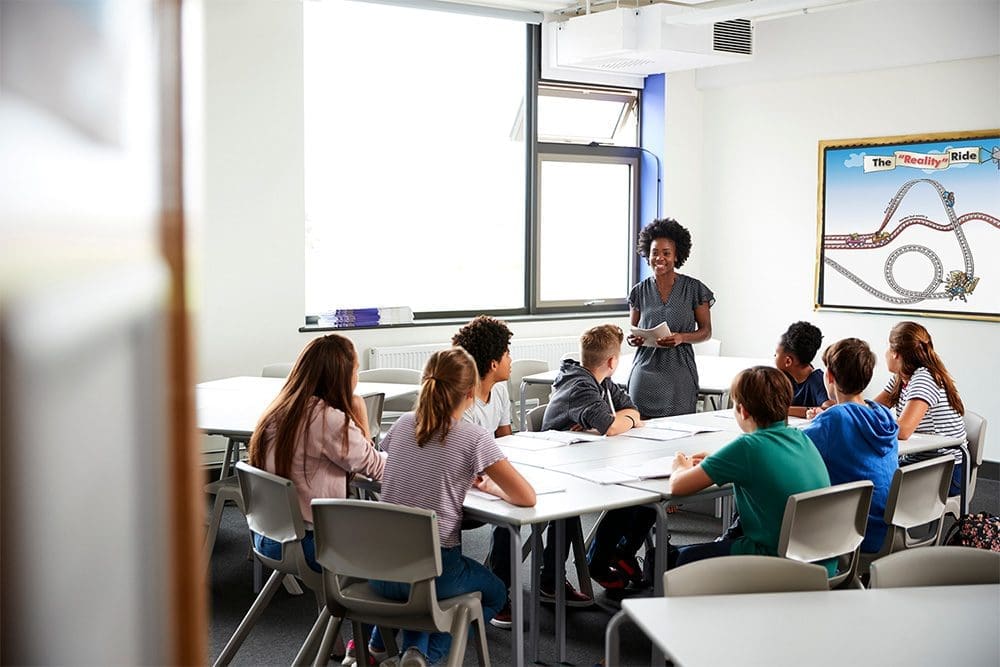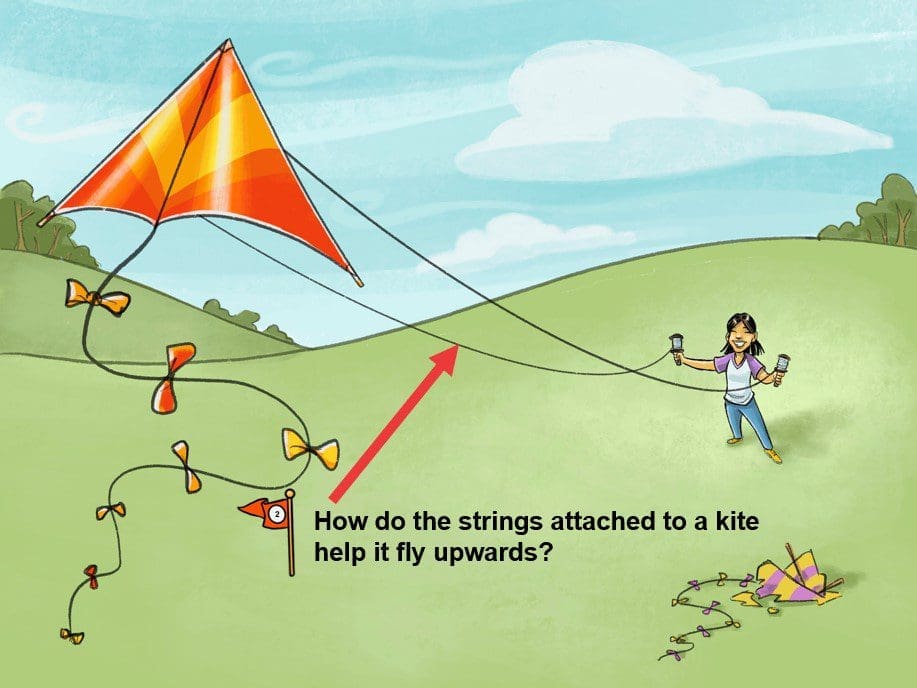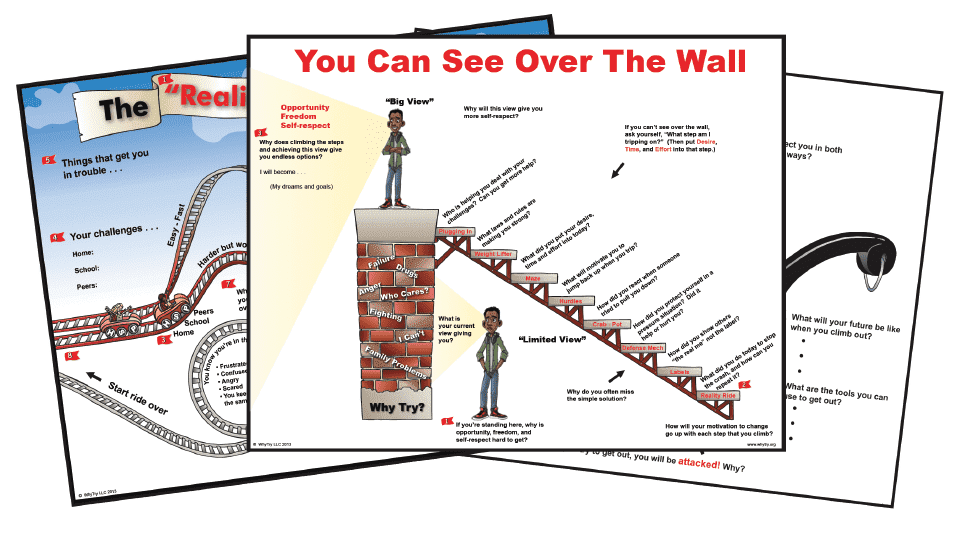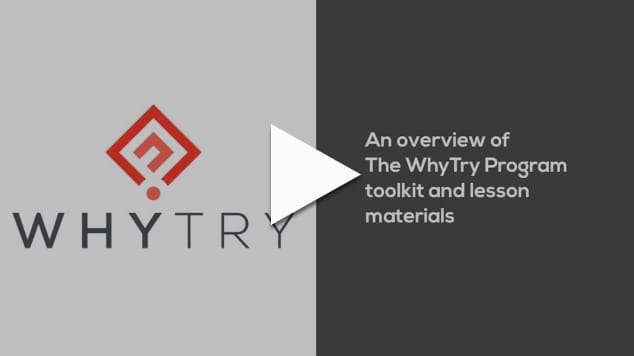Special Thank You for Dallas County School District

Free Resilience Resources for Dallas County Schools
Click on the links below to access any of these free resources shared in the presentation today!

More information about WhyTry
The Transformational Leader Toolkit
Professional development for teachers centered on school connectedness and relationships
Are you an administrator or school leader struggling with teacher burnout, increasing staff turnover rates, and teacher shortages? If so, you’re not alone. The political environment, student mental health challenges, and the aftermath of the pandemic have taken a toll on educators, and many are feeling the effects.
There is hope!
Our Transformational Leader Toolkit will help you focus on practical ways to build strong teacher-student relationships, one of the most effective ways to prevent teacher burnout. When teachers have authentic connections and caring relationships with their students, they are more likely to feel joy in the classroom and motivated by their work.

Teacher-student relationship ties to job satisfaction
“A study in the European Journal of Psychology of Education found that a teacher’s relationship with students was the best predictor of how much the teacher experienced joy versus anxiety in class.”

The Transformational Leader Toolkit
Our administrator toolkit is designed to help school leadership teams transform their school culture by providing a series of pre-built workshops that can be employed as part of:
- A school improvement plan
- Team discussions
- Staff meetings
- PLCs
- Professional development
These resources can create a shift in perspective with teachers and staff and help them build caring relationships with students that motivate and inspire trust.
Not just a “one and done” approach
School leaders can have a discussion with staff on how to improve school culture and relationships, but we all know that true change only takes place with repeated effort and focus. Our administrator’s toolkit provides those resources for continuing the discussion throughout the school year.

The research on teacher-student relationships is clear.
“A Review of Educational Research analysis of 46 studies found that, strong strong teacher-student relationships were associated in both the short-term and long-term with improvements on practically every measure schools care about; higher student academic engagement, improved attendance, improved grades, fewer disruptive behaviors and suspensions, and lower school dropout rates.”

Benefits of using the toolkit
The WhyTry Transformational Leader Toolkit offers a number of benefits for administrators and school leaders, including:
- Reduced teacher burnout
- Increased staff capacity for building caring teacher-student relationships
- Improved school climate
- Reduced student behavior problems
- Increased student engagement
- Improved academic achievement
Ashley Wright
“When you can see the purpose of each WhyTry lesson and use the attention grabbers, music, and metaphors to reach the kids with targeted interventions, WhyTry can help you achieve your goals. We saw a significant decrease in the number of referrals.”
Katelynn Flynn
“I have to say, the hands-on activities were perfect in portraying the message, and we had so many great discussions as a result. In fact, we saw a measurable change with our group. Our students made much better decisions going forward.”
Beth Foster
I’m a teacher at heart, and having WhyTry in my toolkit gives me the flexibility to introduce main parts of the program in my guidance classes, and then I can pull in more content as the kids progress through different grades. It works seamlessly for me.”

Save time with our series of pre-built staff workshops
- Intro to “Surrendering the One-up Relationship” (3 follow-up workshops): This workshop will help you learn how to build more equitable and respectful relationships with your students.
- Intro to “A Trauma-Informed Approach” (1 follow-up workshop): This workshop will help you learn how to create a trauma-informed school culture that supports all students.
- Improving Relationships Through Self-Awareness: This workshop will help you become more aware of your own biases and how they can impact your relationships with students.
- Celebrating Success: This workshop will help you create a culture of celebration and recognition in your school.
- Resilient Listening: This workshop will help you learn how to listen to students with empathy and understanding.
- Mindfulness and Relationships: This workshop will help you learn how to use mindfulness to improve your relationships with students.

The WhyTry Program
WhyTry is a flexible toolkit and curriculum for K-12 teachers and counselors. It provides simple, hands-on strategies and resources to help motivate the unmotivated student, support students with trauma, improve engagement, and increase academic success. The idea is straightforward: teach life skills and resilience to youth in a way they can understand and remember.
The WhyTry Program
Watch an overview of The WhyTry Program, toolkit, and materials. If you still have more questions, or if you are interested in a quote for volume pricing:
What Separates WhyTry
From other programs & tools
10 WhyTry Learning Units
The WhyTry curriculum utilizes a series of
ten visual analogies that teach essential
life skills including:
- Decision-making
- Positive self-esteem
- Emotional regulation
- Having a resilient mindset
- Peer influence & relationships
- Problem-solving
- Hard work & Determination
- Responsibility and expectations
- Relationship building
- Self-efficacy

The Power of Visual Metaphors
One of the most unique things about WhyTry is how we use visual metaphors to teach these important principles to students in a way they can understand and remember. The powerful thing about using this visual approach is the way it takes abstract concepts and puts them into a context through the use of a metaphor that students can understand. It essentially creates a language for educators to communicate the relevance of these things.

